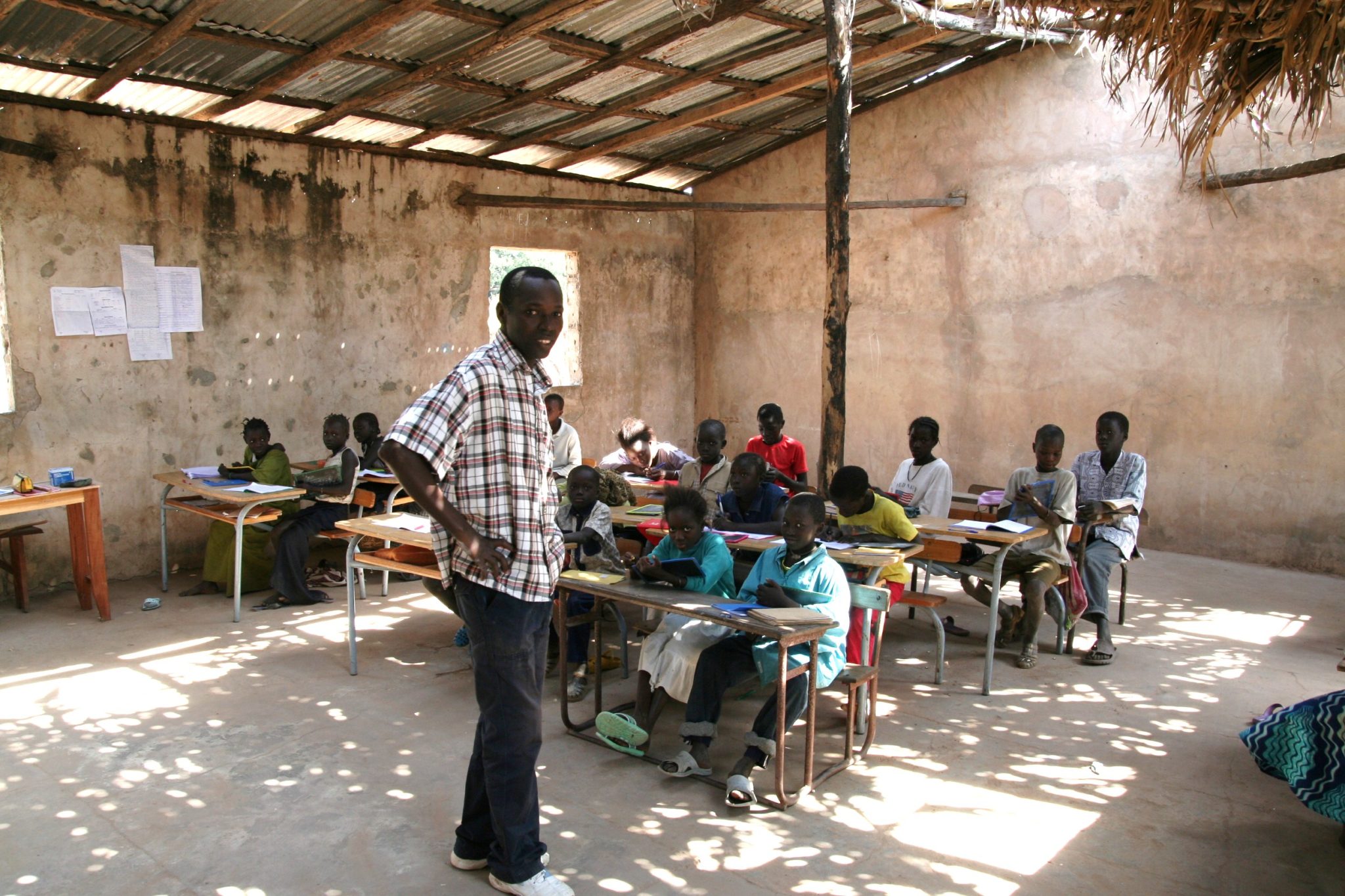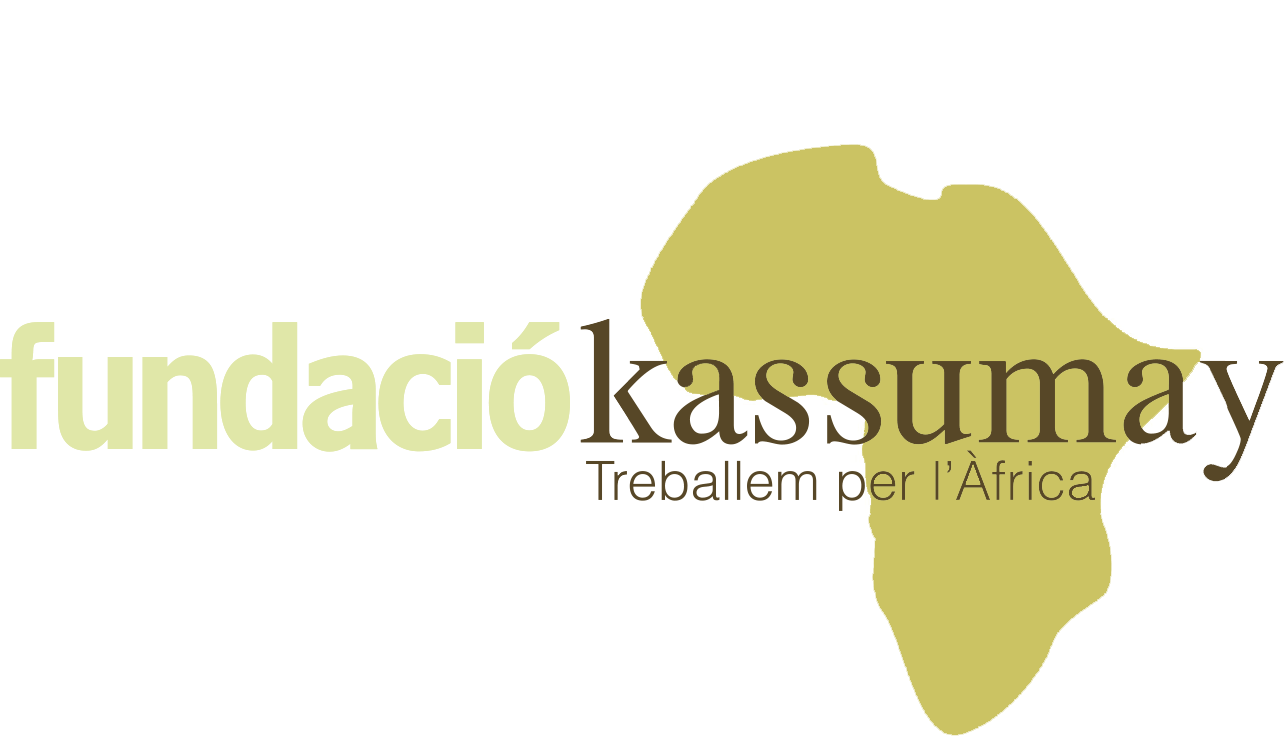WORLD DAY AGAINST CHILD SLAVERY
 Chema Caballero, Castuera (Badajoz) 1961.
Chema Caballero, Castuera (Badajoz) 1961.
Degree in Law from the Autonomous University of Madrid and Master in Human Rights and Conflict Resolution from Long Island University in New York.
In 1992 he arrived in Sierra Leone, where for two decades he directed human rights, rehabilitation and reintegration of child soldiers (a program that has been a model for other countries) and development. He has been an expert for juvenile soldiers for the Special Tribunal for Sierra Leone.
Currently, she works with civil society, development and accompaniment of youth movements, but always in Africa.
Today Chema Caballero, gives us this blog post of the Kassumay Foundation:
CHEMA CABALLERO-NO INTEREST IN DISAPPEARING CHILD SLAVERY
"Run the twenty-first century. There are dozens of international, regional and national documents that fight against every violation of human rights. However, even if it costs to believe it, millions of children are enslaved in different parts of the world (statistics vary and may only be the tip of the iceberg). Many are forced to work in very dangerous conditions and do not usually be in school. Approximately 70% do so in the agricultural and livestock sector. And the vast majority, about 87%, are in sub-Saharan Africa.
In 2020, the first significant increase in slave children in the world was recorded. It thus reversed the struggle against this scourge that for years has been carried out by groups of civil society and NGOs. The covid-19 pandemic had a lot to do with it. One of its main consequences in Africa was the rise in poverty and the realization that the Sustainable Development Goals (SDGs) would not be achieved by 2030 as planned.
In the years following the pandemic, other crises have been added, some already coming from far away, such as climate change or armed conflict. Others have increased, such as the cost of living (food, fuel...), which has been greatly affected by the war between Russia and Ukraine. In addition, lately has been joined by the so-called external debt crisis that has brought many countries in sub-Saharan Africa to the brink of bankruptcy, if they have not already fallen into it. That is why we talk about the 5C, the five crises, which have contributed to the increase in poverty on the continent and, therefore, to the increase in enslaved children. Two phenomena that traditionally go hand in hand.
Children abused in prostitution, pornography or other forms of sexual exploitation. Children forced to beg, commit crimes or smuggle drugs. Children exploited at work in domestic and survival economies, such as agriculture, cattle care, factories, construction, barking walls, mines, quarries, bars, the tourism industry or in private homes. Children forced to participate in armed conflict either as soldiers, porters, cooks, spies, human shields or girls used as sex slaves or 'war wives' of soldiers and milicianos. Children forced to marry in marriages that cannot be opposed or cannot be abandoned. These are just a few of the forms in which child slavery manifests itself in the twenty-first century.
Yes, it's hard to imagine. But in order for mobile phones, computers or electric cars to work and simplify and make Spaniards' lives more comfortable, thousands of enslaved children dig into the mines of the Democratic Republic of Congo in search of coltan or cobble. While they are watched over by children of the same age who wear Kalasnikovs older than them. Others are in canteras chopping stones from sun to sun that will then be used in construction. The cocoa that arrives in Western markets and is consumed in all kinds of sweets, is often collected by children on farms in Ghana or Côte d'Ivoire. Like most roses that are given away for Valentine's Day and come from East Africa.
One could continue to unravel hundreds of examples that show that the well-being of the West would not be the same without the exploitation of these minors in the countries of the South. Hence, although there are laws, norms and conventions that claim to want to fight against child slavery, they are never implemented. If it were done, it would greatly increase the prices of the products needed to maintain the lifestyle to which the citizens of the North have become accustomed and unwilling to give up.
The declarations of sustainability, responsibility and respect for the environment, zero tolerance for child labour, rejection of blood minerals, etc. that large transnational companies and small industries make tend to appease the conscience of their customers. But, interestingly, there are many occasions in which NGO reports or journalistic investigations have shown the scarce credibility of these documents. Rarely, if any, do visits and controls that prevent child work in their chains of supplies. The opacity surrounding their operations in Africa makes it very difficult to verify that the raw materials they use are clean."
 School at Casamance (Senegal)
School at Casamance (Senegal)
We appreciate this extraordinary collaboration of Chema Caballero and to know more we invite you to click Here


